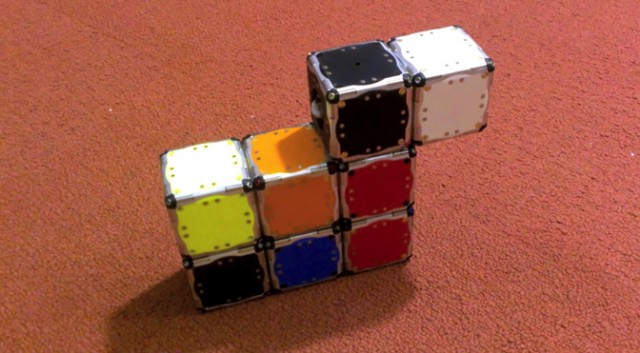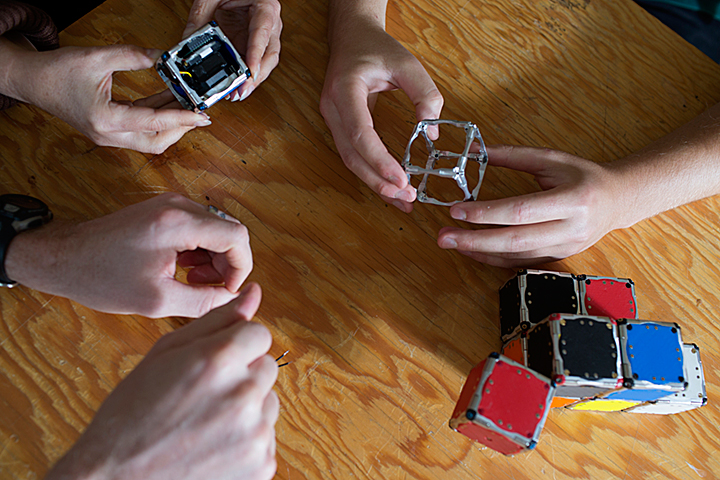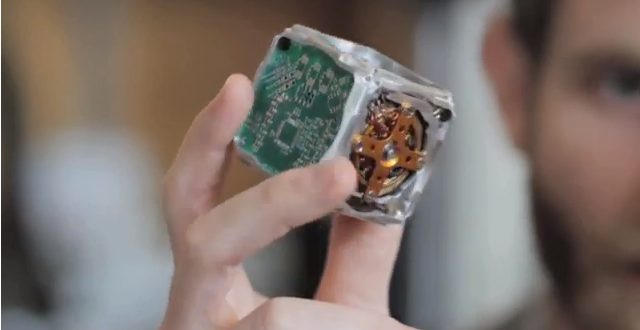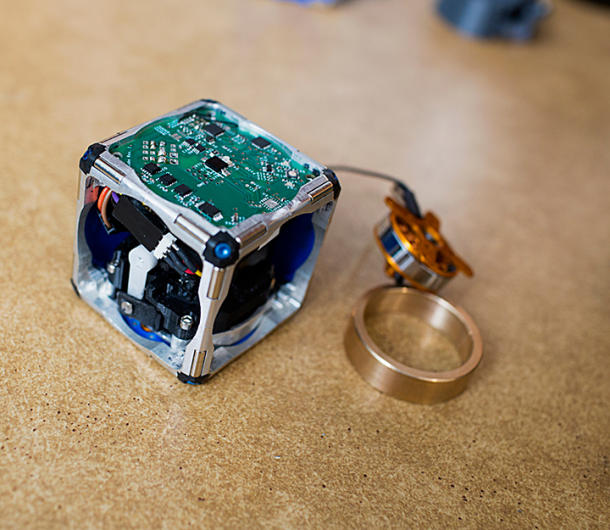[WATCH] These Robot Cubes Make Our Childhood Toys Look Like...
These robotic cubes with no external moving parts are able to climb over and around one another, leap through the air, roll across the ground, and even move while suspended upside down from metallic surfaces.
The extraordinary robots can flip, jump and assemble themselves into a range of different shapes
Unveiled in the above video featuring the team of MIT researchers who built them, the tiny robots have no external parts but are able to move by employing an internal flywheel mechanism.
The cube robots are able to stick together with the help of magnets located on their corners. These also provide course correction and stability for the cubes, MIT News reports.
Currently, the robots are controlled by computer instructions that are sent through a wireless radio!
Although, the researchers hope that future robot fleets will be able to function autonomously through algorithms loaded directly into the blocks.
Inside each robot is a flywheel that can reach speeds of 20,000 revolutions per minute; when the flywheel is braked, it imparts its angular momentum to the cube.
On each edge of an M-Block, and on every face, are cleverly arranged permanent magnets that allow any two cubes to attach each other.
Scientists envision that groups of these cubes could eventually be used to make temporary repairs to damaged bridges or assembled as scaffolding that could easily be reconfigured.
And with their ability to adapt to their surrounding environments, the cube robots won't be exceptionally limited to their location of use.
John Romanishin, who first presented the design for the modular robots in 2011, an MIT senior at the time, says:
"We want hundreds of cubes, scattered randomly across the floor, to be able to identify each other, coalesce and autonomously transform into a chair, or a ladder, or a desk, on demand."
cnet.comThe team of researchers are now working to complete an initial force of 100 robot cubes, block by block, making the dreams of Transformer lovers worldwide a slightly scaled-down reality.
A prototype of a new modular M-Block robot with its innards and flywheel exposed
A prototype of a new modular robot, with its innards exposed and its flywheel — which gives it the ability to move independently — pulled out.
Image via cbsistatic.comThe ultimate aim of most such research is hordes of swarming microbots that can self-assemble, like the ‘liquid steel’ androids in the movie "Terminator 2"
Have something to say about this? Facebook or Tweet us! We'll feature it on SAYS
SAYS is Malaysia's social news network. Find today's must-share stories, news and videos everyday, produced and brought to you by Malaysian social media users.
 facebook.com
facebook.com
Yang terkini daripada Latest on SAYS (@SAYSdotMY). SAYS is Malaysia's social news network. Tweet us and let us know what's happening around you! We'll look into it.




